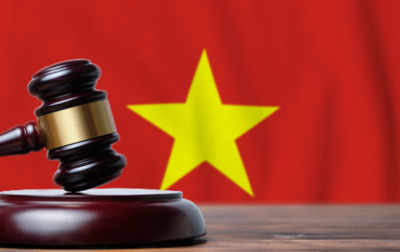TACHAN
- 8 August, 2023
- by Admin
Overview of Vietnam’s Legal and Regulatory Framework for Foreign Investors
Vietnam has undergone significant economic transformation and has emerged as an attractive destination for foreign investors. To ensure a conducive business environment, the Vietnamese government has implemented various legal and regulatory measures to promote foreign investment. In this post, we will provide an overview of Vietnam’s legal and regulatory framework for foreign investors, highlighting key aspects such as investment types, entry modes, business registration, and sector-specific regulations.
Investment Types:
Foreign investors in Vietnam can engage in various investment types, including:
● Direct Investment: Establishing a wholly foreign-owned enterprise (WFOE) or a joint venture with a local partner.
● Indirect Investment: Investing in Vietnamese stocks, securities, or other financial instruments through the stock market or investment funds.
● Public-Private Partnerships (PPPs): Collaborating with the government in infrastructure projects or other public sectors through PPP arrangements.
Entry Modes:
Foreign investors can enter Vietnam through different entry modes, such as:
● Setting up a new company: This involves establishing a new legal entity, such as a limited liability company (LLC), joint-stock company, or branch office.
● Acquiring an existing company: Foreign investors can acquire an existing Vietnamese company or invest in equity shares of local companies.
● Business cooperation contract (BCC): This is a form of contractual cooperation between foreign and Vietnamese parties to undertake a specific project.
Business Registration:
Foreign investors must comply with the following registration processes:
● Investment Registration: Foreign investors need to obtain an Investment Registration Certificate (IRC) from the relevant authorities. The IRC outlines the investment details, including capital, business activities, and duration.
● Enterprise Registration: After obtaining the IRC, foreign investors must register their business with the Department of Planning and Investment to receive an Enterprise Registration Certificate (ERC). This certificate grants legal recognition to the business entity.
Legal Protection:
Vietnam provides legal protection to foreign investors through several mechanisms:
● Bilateral Investment Treaties (BITs): Vietnam has signed BITs with several countries, providing protection for foreign investments, including provisions on dispute resolution and investment guarantees.
● Intellectual Property Rights (IPR): Vietnam has implemented intellectual property laws and regulations to protect trademarks, copyrights, patents, and trade secrets.
Sector-Specific Regulations:
Certain sectors in Vietnam have specific regulations and restrictions for foreign investors. These sectors include banking and finance, telecommunications, media, energy, and healthcare. Foreign investors should familiarize themselves with sector-specific regulations and requirements before entering these industries.
Taxation and Incentives:
Vietnam offers various tax incentives and preferential treatments to attract foreign investment. These include tax exemptions, reductions, and investment incentives in specific regions or industries. The tax framework in Vietnam is subject to periodic updates, and investors should stay informed about the latest tax regulations and incentives.
Vietnam’s legal and regulatory framework provides a supportive environment for foreign investors. Understanding the investment types, entry modes, business registration processes, legal protection mechanisms, sector-specific regulations, and taxation framework is crucial for foreign investors to navigate the Vietnamese business landscape successfully. Seeking legal advice and staying updated on the evolving legal and regulatory environment can help investors make informed decisions and maximize their investment opportunities in Vietnam.
- Tags:
Related news





